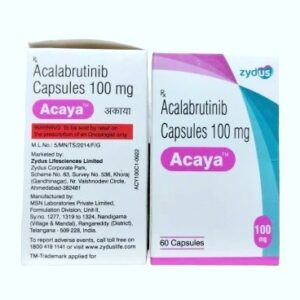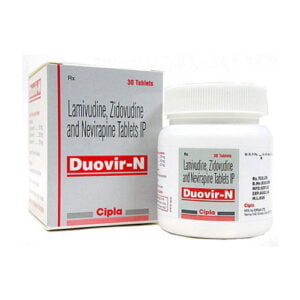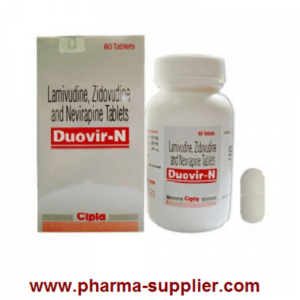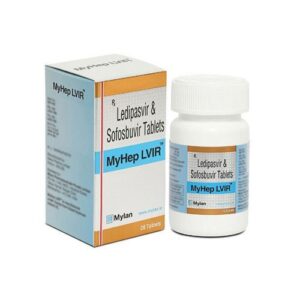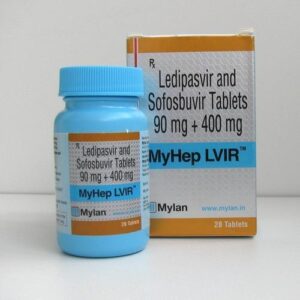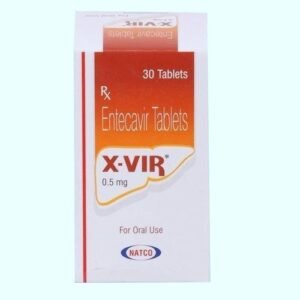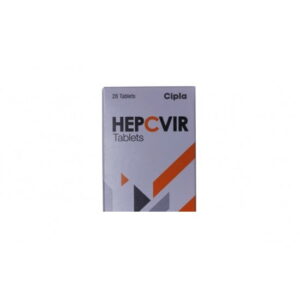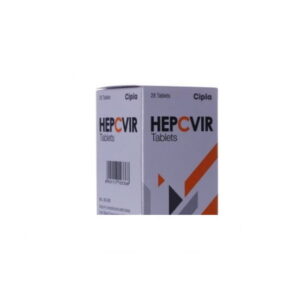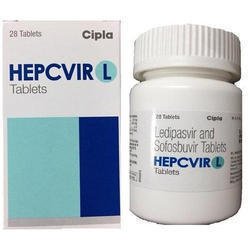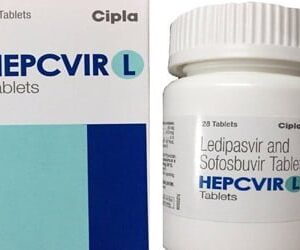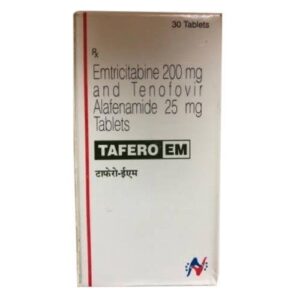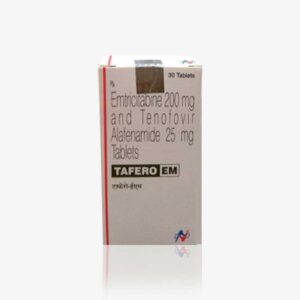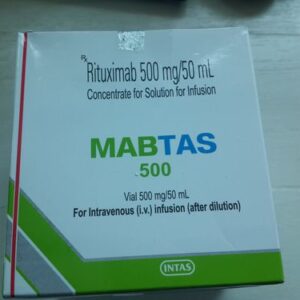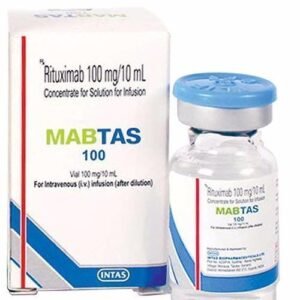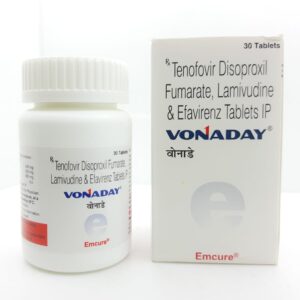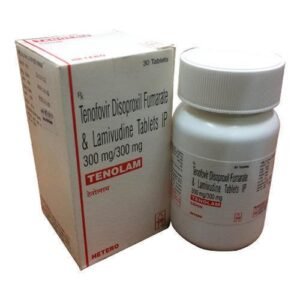Last Updated on July 22, 2024 by admin
Introduction to Acalnib 100mg Capsule
Acalnib 100mg Capsule is a pharmaceutical product classified under targeted therapy drugs, primarily used in the treatment of specific types of cancers. This medication falls within the category of kinase inhibitors, which function by obstructing the activity of certain enzymes (kinases) that play a crucial role in the growth and proliferation of cancer cells. Acalnib’s efficacy is particularly noted in the management of conditions such as chronic lymphocytic leukemia (CLL) and mantle cell lymphoma (MCL).
The development of Acalnib was driven by the urgent need for more effective treatments for hematologic malignancies. Researchers focused on creating a compound that could selectively inhibit the Bruton’s tyrosine kinase (BTK) enzyme, an essential component in the signaling pathways that facilitate cancer cell survival and propagation. After rigorous preclinical and clinical trials, Acalnib demonstrated significant efficacy and safety profiles, leading to its approval by major regulatory bodies, including the U.S. Food and Drug Administration (FDA) and the European Medicines Agency (EMA).
Approved for clinical use, Acalnib 100mg Capsule has provided a promising alternative for patients who have not responded adequately to conventional therapies. The capsule form allows for convenient oral administration, making it easier for patients to adhere to their treatment regimen. Furthermore, the targeted nature of Acalnib helps to minimize the collateral damage to healthy cells, thereby reducing the severity of adverse effects often associated with traditional chemotherapy.
Overall, Acalnib 100mg Capsule represents a significant advancement in oncology, offering hope to many patients by improving treatment outcomes and enhancing quality of life. As ongoing research continues to explore its full potential, Acalnib remains a cornerstone in the evolving landscape of cancer therapeutics.
Uses of Acalnib 100mg Capsule
How Acalnib 100mg Capsule Works
Acalnib 100mg Capsule operates through a sophisticated mechanism at the molecular level to exert its therapeutic effects. Primarily, Acalnib functions by targeting specific protein kinases involved in cellular signaling pathways. These protein kinases play a crucial role in the regulation of cellular processes such as growth, differentiation, and apoptosis (programmed cell death).
One of the key targets of Acalnib is the Bruton’s tyrosine kinase (BTK). BTK is an enzyme that is vital for the development and functioning of B cells, which are a type of white blood cell integral to the immune system. In certain diseases, such as specific types of cancer and autoimmune disorders, BTK becomes overactive, leading to abnormal cell proliferation and survival. Acalnib binds to BTK, inhibiting its activity and thereby disrupting the aberrant signaling pathways.
By inhibiting BTK, Acalnib effectively hampers the survival and proliferation of malignant B cells. This action helps in controlling the progression of B-cell malignancies such as chronic lymphocytic leukemia (CLL) and mantle cell lymphoma (MCL). Additionally, in autoimmune diseases, where the immune system mistakenly attacks the body’s own cells, Acalnib’s modulation of BTK activity helps reduce the inappropriate immune response.
The biochemical process can be simplified as follows: when Acalnib is administered, it is absorbed into the bloodstream and transported to various tissues. Upon reaching the target cells, it binds to the BTK enzyme, forming a stable complex that inhibits the enzyme’s function. This inhibition leads to a cascade of downstream effects, ultimately resulting in the suppression of abnormal cell growth and immune responses.
Through its precise targeting of BTK and modulation of critical signaling pathways, Acalnib 100mg Capsule offers a potent therapeutic option for patients with certain cancers and autoimmune conditions. Understanding this mechanism not only underscores the drug’s efficacy but also highlights the importance of continued research into targeted therapies in modern medicine.
Common Uses and Indications
Acalnib 100mg Capsule is a medication widely recognized for its efficacy in treating a range of medical conditions. Primarily, it is prescribed for the management of chronic lymphocytic leukemia (CLL) and small lymphocytic lymphoma (SLL). These are types of blood cancers that affect lymphocytes, a kind of white blood cell, and present challenges in the immune system. Acalnib works by inhibiting certain proteins that promote the growth and survival of cancer cells, thereby slowing down or stopping the progression of the disease.
Additionally, Acalnib 100mg Capsule is often utilized for the treatment of mantle cell lymphoma (MCL), an aggressive form of non-Hodgkin lymphoma. The drug’s targeted action on malignant cells helps in reducing tumor growth and alleviating the symptoms associated with MCL. Patients undergoing treatment for MCL may experience improvements in their overall prognosis due to the effectiveness of Acalnib in managing the disease.
Beyond its primary indications, Acalnib is also used off-label for other conditions as determined by healthcare providers. Some of these off-label uses include the treatment of Waldenström’s macroglobulinemia (WM), a rare type of cancer that involves the overproduction of abnormal white blood cells. In WM, Acalnib can help in reducing the number of cancerous cells and improving patient outcomes. Similarly, it has shown promise in managing certain cases of multiple myeloma, where it aids in controlling the proliferation of malignant plasma cells.
In each of these conditions, Acalnib 100mg Capsule provides a critical therapeutic option, contributing to better disease management and improved quality of life for patients. By targeting the specific pathways involved in cancer cell growth, Acalnib offers a tailored approach to treatment, making it a valuable asset in oncology therapeutics.
Dosage and Administration Guidelines
The prescribed dosage for Acalnib 100mg Capsule is determined by a healthcare professional based on the individual patient’s condition and response to the treatment. Typically, the standard recommended dosage is one 100mg capsule taken orally once daily. It is essential to follow the healthcare provider’s instructions precisely to ensure optimal therapeutic outcomes.
Acalnib 100mg Capsule should be taken with a full glass of water, and it is advisable to swallow the capsule whole without crushing, chewing, or breaking it. The medication can be taken with or without food; however, taking it with food may help minimize potential gastrointestinal discomfort. Patients should avoid consuming grapefruit and grapefruit juice while on this medication, as they can interfere with the drug’s absorption and effectiveness.
If a dose is missed, it should be taken as soon as the patient remembers, provided it is not too close to the time for the next scheduled dose. If it is nearly time for the next dose, the missed dose should be skipped, and the patient should continue with their regular dosing schedule. Doubling up on doses to make up for a missed one is not recommended.
In the event of an overdose, immediate medical attention is required. Symptoms of overdose may include severe dizziness, fainting, or difficulty breathing. It is crucial to contact emergency services or go to the nearest hospital emergency department if an overdose is suspected.
Patients are advised to maintain open communication with their healthcare providers throughout the duration of their treatment with Acalnib 100mg Capsule. This includes reporting any adverse effects or unusual symptoms and adhering strictly to the prescribed dosage and administration guidelines to ensure the safe and effective use of this medication.
Safety Advices for Acalnib 100mg Capsule

Pregnancy
Acalnib 100mg Capsule is unsafe during pregnancy. It can harm the developing fetus, so pregnancy should be avoided while taking this medicine.

Breast Feeding
It is unknown whether Acalnib 100mg Capsule is excreted into human breast milk, so breastfeeding women should consult a doctor before taking it.

Lungs
If you have a lung disease or lung cancer and are considering treatment with Acalnib 100mg Capsule, it is important to discuss this medication’s potential benefits and risks with your healthcare provider.

Liver
Acalnib 100mg Capsule can affect the liver, elevating liver enzymes (AST, ALT) in some patients taking it. In rare cases, severe liver injury or failure has been reported.

Alcohol
Patients taking Acalnib 100mg Capsules avoid or limit their alcohol consumption, as alcohol can exacerbate certain side effects of the medication, such as fatigue and depression.

Driving
Patients should always monitor their response to the Acalnib 100mg Capsule medication and be cautious when driving or operating machinery if they experience any side effects that may impair their ability to do so safely.

Kidney
Potential Side Effects and Risks
Acalnib 100mg Capsule, while generally effective in managing the conditions for which it is prescribed, may present a variety of side effects, categorized by their frequency and severity. Understanding these potential side effects is crucial for both patients and healthcare providers to ensure safe and effective treatment.
Common Side Effects: The most frequently reported side effects of Acalnib 100mg Capsule are typically mild and transient. These include gastrointestinal disturbances such as nausea, vomiting, and diarrhea. Some patients may also experience headaches, dizziness, and fatigue. These side effects often diminish as the body adjusts to the medication, and they can usually be managed with supportive care.
Less Common but Serious Side Effects: While less common, some individuals may experience more serious side effects. These can include significant changes in liver function, indicated by symptoms such as jaundice, dark urine, or severe abdominal pain. Additionally, cardiovascular events such as hypertension or irregular heartbeats, although rare, have been reported. Patients experiencing these symptoms should seek immediate medical attention.
Rare Adverse Effects: In rare instances, Acalnib 100mg Capsule may cause severe allergic reactions, characterized by hives, difficulty breathing, and swelling of the face, lips, tongue, or throat. Another rare but critical side effect is myelosuppression, a condition where bone marrow activity is decreased, leading to reduced production of blood cells. Symptoms may include unusual bruising or bleeding, persistent sore throat, or signs of infection such as fever and chills.
Risk Factors: Certain individuals may be at a heightened risk for experiencing these side effects. Factors such as pre-existing liver or kidney conditions, a history of cardiovascular disease, or concurrent use of other medications that interact with Acalnib can increase the likelihood of adverse reactions. Patients should disclose their full medical history to their healthcare provider to mitigate these risks.
Recognizing the signs of potential side effects and understanding the associated risks can significantly enhance the safety and efficacy of Acalnib 100mg Capsule. Continuous monitoring and open communication with healthcare professionals remain pivotal in managing and mitigating these risks effectively.
Interactions with Other Drugs and Substances
Acalnib 100mg capsule, like many other medications, can interact with a range of other drugs and substances, potentially altering its effects or increasing the risk of adverse reactions. Understanding these interactions is crucial for ensuring both the efficacy and safety of your treatment regimen.
One of the primary concerns when taking Acalnib is its interaction with other prescription medications. Blood thinners, such as warfarin, and antiplatelet drugs, like aspirin and clopidogrel, can significantly increase the risk of bleeding when used concurrently with Acalnib. Additionally, nonsteroidal anti-inflammatory drugs (NSAIDs), such as ibuprofen and naproxen, may also exacerbate this risk.
Certain types of antibiotics, including clarithromycin and rifampin, can either increase or decrease the levels of Acalnib in your bloodstream, potentially reducing its efficacy or heightening the likelihood of side effects. Antifungal medications, such as fluconazole, should also be used with caution due to similar concerns.
Moreover, Acalnib may interact with various over-the-counter supplements and herbal products. St. John’s Wort, a common herbal remedy for depression, can lower the effectiveness of Acalnib by accelerating its metabolism. Other supplements, such as ginkgo biloba and fish oil, may increase bleeding risk and should be discussed with your healthcare provider before use.
Alcohol consumption should be moderated while taking Acalnib, as it can amplify the drug’s side effects, particularly related to liver function and gastrointestinal irritation. Grapefruit juice is another substance to be cautious of, as it can interfere with the metabolism of Acalnib, potentially leading to higher than intended drug levels in the body.
Given the potential for these interactions, it is imperative to consult your healthcare provider before starting Acalnib or any new medication or supplement. Comprehensive communication with your healthcare provider will help manage and mitigate the risks associated with drug interactions, ensuring safe and effective use of Acalnib 100mg capsules.
Precautions and Contraindications
Acalnib 100mg Capsule, while effective for its intended uses, requires careful consideration of certain precautions and contraindications to ensure patient safety. One of the primary populations that should avoid using Acalnib includes pregnant and breastfeeding women. The potential risks to both the mother and child necessitate a thorough evaluation by a healthcare provider before initiating treatment. If you are pregnant, planning to become pregnant, or currently breastfeeding, it is crucial to consult your physician to discuss safer alternatives.
Additionally, individuals with certain pre-existing medical conditions should exercise caution when considering Acalnib. Patients with a history of cardiovascular diseases, liver or kidney impairments, and gastrointestinal disorders should undergo a comprehensive medical assessment. These conditions could potentially be exacerbated by Acalnib, requiring close monitoring and possible dosage adjustments. It is imperative to provide your healthcare provider with an accurate medical history to facilitate an informed decision.
Moreover, those with known allergies to any components of Acalnib 100mg Capsule must avoid this medication. Allergic reactions can range from mild symptoms, such as rashes and itching, to severe anaphylactic reactions. If you have experienced allergic reactions to similar medications in the past, inform your doctor immediately.
For patients on concurrent medications, potential drug interactions must be considered. Acalnib can interact with other pharmaceuticals, leading to diminished efficacy or increased risk of adverse effects. Therefore, a comprehensive review of all current medications, including over-the-counter drugs and supplements, is essential. Your healthcare provider can then determine if Acalnib is a suitable option or if alternative treatments should be explored.
Monitoring and managing any pre-existing conditions while on Acalnib is critical for patient safety. Regular check-ups and laboratory tests may be required to track the medication’s impact on your health. Staying informed and maintaining open communication with your healthcare team can significantly mitigate potential risks associated with Acalnib 100mg Capsule.
Conclusion and Final Thoughts
In conclusion, the Acalnib 100mg Capsule represents a significant advancement in therapeutic options for various health conditions. Its efficacy, when administered correctly, can result in substantial improvements for patients. However, the importance of adhering to medical guidance cannot be overstated. Proper usage, as prescribed by a healthcare professional, ensures that the benefits of Acalnib 100mg Capsule are maximized while minimizing potential risks.
The benefits of Acalnib 100mg Capsule are well-documented, ranging from its capability to manage chronic ailments to improving overall patient outcomes. It is crucial for patients to understand that self-medication or deviation from the prescribed dosage can lead to adverse effects. Therefore, it is imperative to follow the advice of healthcare providers, who are best positioned to tailor treatments based on individual health profiles and specific conditions.
For those considering Acalnib 100mg Capsule as a treatment option, open communication with healthcare providers is essential. This dialogue ensures that all questions and concerns are addressed, fostering a better understanding of the treatment plan and its implications. It is advisable to report any unusual symptoms or side effects promptly to healthcare professionals to prevent complications.
The role of the patient in managing their health, alongside professional medical advice, cannot be undervalued. By maintaining this collaborative approach, the therapeutic potential of Acalnib 100mg Capsule can be fully realized, contributing to improved health outcomes. As always, consulting with healthcare providers before starting any new medication is a prudent step towards maintaining optimal health and well-being.
FAQ – Acalnib 100mg Capsule
Q: What is Acalnib 100mg capsule used for?
A: Acalnib 100mg capsule is primarily used to treat certain types of cancers, such as mantle cell lymphoma or chronic lymphocytic leukemia.
Q: When is the best time to take Acalnib 100mg capsule?
A: It is recommended to take Acalnib 100mg capsule at the same time each day, either with or without food as directed by your healthcare provider.
Q: What are the long-term side effects of Acalnib 100mg capsule?
A: Long-term side effects of Acalnib may include increased risk of infections, bleeding problems, and potential heart issues. It is important to discuss any concerns with your healthcare provider.
Q: Can you provide a review of Acalnib 100mg capsule?
A: Reviews of Acalnib may vary from person to person. It is recommended to consult with your healthcare provider for personalized information based on your specific health condition.
Q: What are the common uses of Acalnib 100mg capsule?
A: Common uses of Acalnib 100mg capsule include treating specific types of cancer, particularly mantle cell lymphoma and chronic lymphocytic leukemia.
Q: What is the recommended dosage of Acalnib 100mg capsule?
A: The recommended dosage of Acalnib 100mg capsule is typically determined by your healthcare provider based on your individual condition and needs. It is important to follow their instructions carefully.
Q: Is Acalnib 100mg capsule safe to use?
A: Acalnib 100mg can be safe and effective when used as prescribed by a healthcare professional. However, like any medication, it may have potential side effects or interactions. Consult your healthcare provider for personalized
References:
- AstraZeneca, Electronica medicines compendium (EMC), [Revised on Dec 2020], [ Accessed on 5th May 2023], https://www.medicines.org.uk/emc/files/pil.11917.pdf
- AstraZeneca, US Food and Drug Administration, [ Revised on Oct 2017], [ Accessed on 5th May 2023], https://www.accessdata.fda.gov/drugsatfda_docs/label/2017/210259s000lbl.pdf
- John C Byrd et al; Acalabrutinib monotherapy in patients with relapsed/refractory chronic lymphocytic leukemia: updated phase 2 results; Blood; Published on April 2020; [Accessed on5th May 2023]; https://pubmed.ncbi.nlm.nih.gov/31876911


